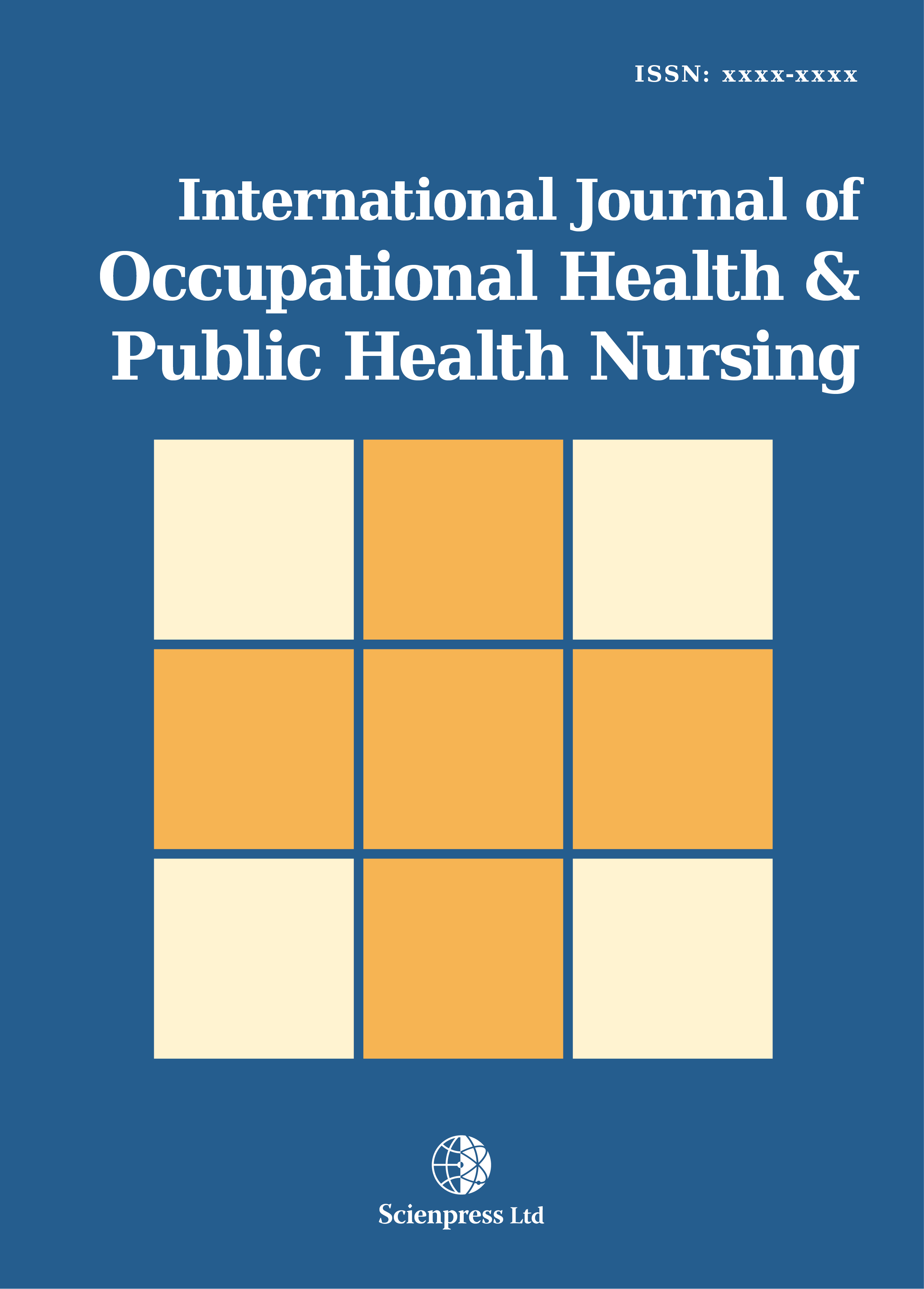International Journal Of Occupational Health and Public Health Nursing
Occupational Stress and Perceived Quality of Life Among Clinical Nurses: A Cross-Sectional Study in A Nigerian State
-
 [ Download ]
[ Download ]
- Times downloaded: 8453
Abstract
This study assessed the influence of occupational stress on perceived quality of life among clinical nurses in selected hospitals in Nigeria. A cross sectional descriptive research design was adopted while multiple sampling was used to select the respondents from hospitals in Ogun state. Slovinís formula (n=N/[1+N (e≤)]) was used to determine the sample size of 425. A structured questionnaire was used to obtain information from respondents. The analysis was done with SPSS version 25 while descriptive such as tables and bar charts and inferential statistics were used to present the data. Findings revealed that the mean age of the respondents is 36.37Ī8.90 years and majority of the respondents were between 30-49 years. Almost half of the respondents (48.0%) reported high occupational stress while 44.2% and 7.8% reported low & fair occupational stress respectively. High workload (83.9%), long hours of night shift (71.1%), lack of resources and equipment (67.8%), frequency night shift (67.5%), emotional load of dealing with aggressive and demanding patients (62.6%), poor salary (61.6%), and prolong standing with no time for break (58.5%) are factors responsible for stress among nurses. The results further showed that 52.2% of the respondents reported good work-related quality of life while 38.8% rated their work-related quality of life as poor. The study also showed that there was significant relationship between occupational stress (Organizational issues (P= 0.035), Occupational hazards (P= 0.024), Interpersonal relationships (p= 0.003) and unmet basic physiological needs (P= 0.005)) and work-related quality of life. Conclusion: This study concluded that occupational stress affects nursesí work-related quality of life negatively and influence patientsí outcomes. Hence, there is an urgent need for development of health promotion programmes on stress reduction and stress management.
Keywords: Influence, Occupational Stress, Quality of life, Clinical Nurses.
